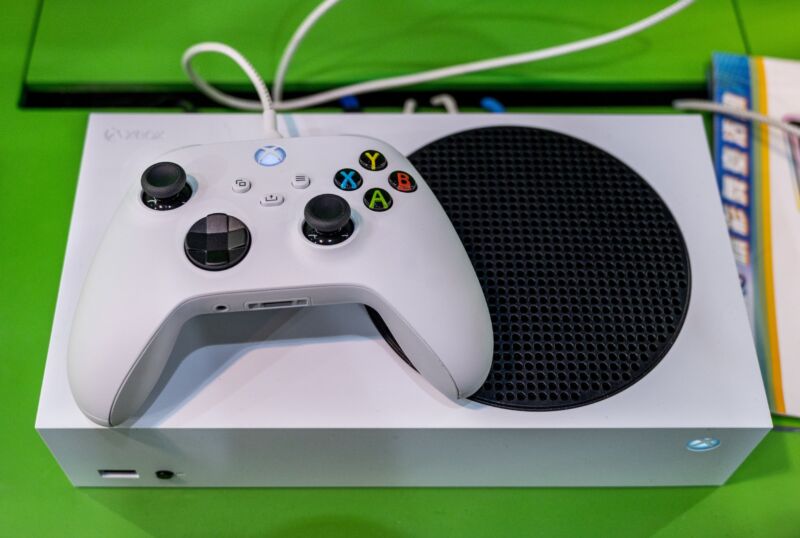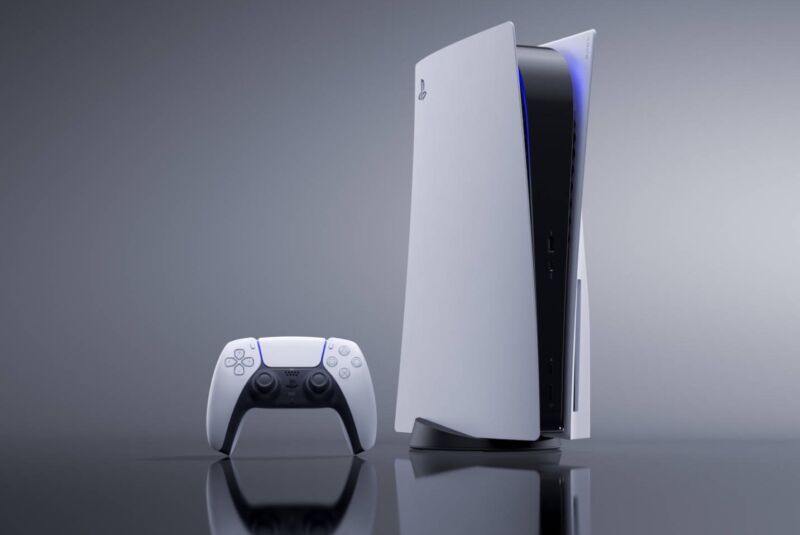
Microsoft slammed Sony and UK regulators amid a challenge to its proposed acquisition of Activision Blizzard, saying the UK has relied too much on Sony's "self-serving" arguments.
The UK Competition & Markets Authority (CMA) last month referred the $68.7 billion deal to a Phase 2 investigation, which could result in the merger being prohibited or a requirement to sell some parts of the business. The CMA today released the full text of its referral decision, and Microsoft provided Ars with the executive summary of its latest response to the regulatory agency.
Sony has argued that Microsoft could pull Call of Duty from PlayStation, saying Microsoft's offer to keep the Activision Blizzard game series on PlayStation for at least another three years beyond the current agreement is inadequate.
In its filing with UK regulators, Microsoft said PlayStation "has been the largest console platform for over 20 years" and that it's "not credible" to suggest "that the incumbent market leader, with clear and enduring market power, could be foreclosed by the third largest provider as a result of losing access to one title." Microsoft continued in its response to the CMA:
In short, Sony is not vulnerable to a hypothetical foreclosure strategy, and the Referral Decision incorrectly relies on self-serving statements by Sony which significantly exaggerate the importance of Call of Duty to it and neglect to account for Sony's clear ability to competitively respond. The CMA's assessment of this theory ignores its acknowledgement in the Referral Decision that the gaming industry is "dynamic." While Sony may not welcome increased competition, it has the ability to adapt and compete. Gamers will ultimately benefit from this increased competition and choice.
Microsoft: Call of Duty concerns overblown
Microsoft submitted its full response to the CMA's Phase 1 analysis this week. The full document isn't public yet, but Microsoft made the executive summary public today.
"The CMA's theories of harm relate to one overarching concern: that Activision Blizzard's game catalogue—in particular the Call of Duty franchise—will enable Xbox to foreclose its competitors in gaming markets. This concern is misplaced," Microsoft's response said. "The Referral Decision fails to recognize the incredible array of popular and diverse gaming content that is available to market participants and overstates the importance of Activision Blizzard's content to competition in gaming."
Microsoft said it "plans to make the Call of Duty franchise available to more gamers in more ways than would have been the case in the counterfactual." The company also said that Sony wields its own market power by "increasing prices of its consoles without fear of losing market share."
Microsoft further pointed to Sony's own recent acquisitions of game studios, including Destiny 2-maker Bungie. Sony also has minority stakes in Elden Ring-maker From Software and Epic Games. "There were over 280 exclusive first- and third-party titles on PlayStation in 2021, nearly five times as many as on Xbox," Microsoft said.
We contacted Sony today and will update this article if we get a response.
UK scrutinizes gaming competition
The CMA said last month that the Microsoft/Activision Blizzard merger "could substantially lessen competition," citing concerns about "competition in gaming consoles, multi-game subscription services, and cloud gaming services (game streaming)."
In its decision to refer the merger, the CMA said Microsoft could withhold Call of Duty and other franchises "from other consoles or multi-game subscription services," or "degrad[e]" the games on non-Xbox platforms. The regulator said:
Acquiring [Activision Blizzard] would significantly expand Microsoft's own gaming library, adding some of the world's best-selling and most recognizable franchises, including Call of Duty, World of Warcraft, and Candy Crush. The CMA is concerned that having full control over this powerful catalogue, especially in light of Microsoft's already strong position in gaming consoles, operating systems, and cloud infrastructure, could result in Microsoft harming consumers by impairing Sony's—Microsoft's closest gaming rival—ability to compete as well as that of other existing rivals and potential new entrants who could otherwise bring healthy competition through innovative multi-game subscriptions and cloud gaming services.
In the US, Microsoft is waiting for a merger decision from the Federal Trade Commission. Microsoft has been touting the fact that it won merger approval in Brazil, saying the regulator's decision backs up its own arguments. There is "no evidence that Call of Duty is essential to rival game distributors," and "Microsoft would have clear incentives to continue licensing Activision Blizzard games to third-party consoles and other platforms," Microsoft said.
Microsoft aims to close merger in fiscal-year 2023
The CMA has a deadline of March 1, 2023, to issue a final report. After a final report, under UK rules, "the CMA has a statutory deadline of 12 weeks (extendable by up to six weeks for special reasons) to make an order or accept undertakings to give effect to its Phase 2 remedies."
Hearings are scheduled for December, and "provisional findings and possible remedies" could be announced in January under the published timeline. The parties would then have until February for final responses and submissions.
Microsoft said it's confident the UK will ultimately approve the merger. "We're committed to answering the CMA's questions and ultimately believe a thorough review will help the deal close with broad confidence. We're still on track for it to close in fiscal year 2023 as initially anticipated," Microsoft said in a statement provided to Ars.
The Phase 2 investigation could be a significant hurdle, though. In another high-profile case, Nvidia and ARM scrapped a planned merger after the CMA launched a Phase 2 investigation. The companies canceled the deal during the investigation but shortly before scheduled Phase 2 hearings.
https://ift.tt/mqpnRrb
Technology

No comments:
Post a Comment